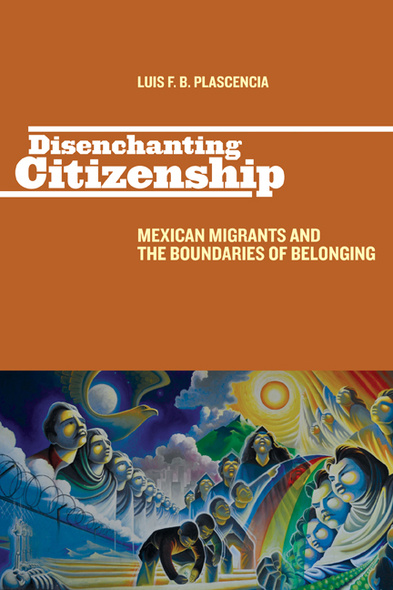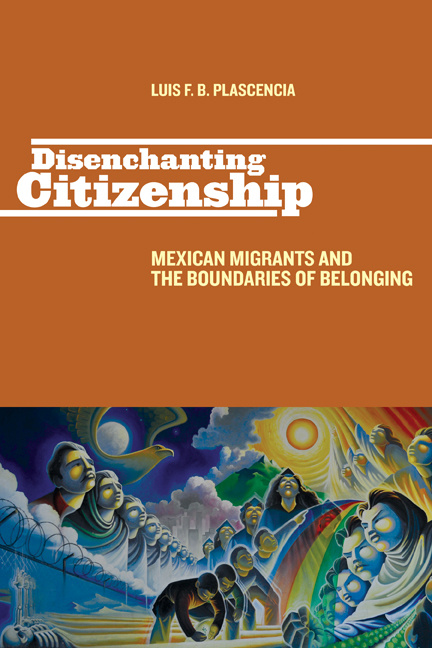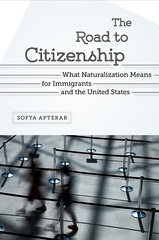
Disenchanting Citizenship
Mexican Migrants and the Boundaries of Belonging
The book explores the meaning of U.S. citizenship through the experience of a unique group of Mexican migrants who were granted Temporary Status under the “legalization” provisions of the 1986 IRCA, attained Lawful Permanent Residency, and later became U.S. citizens. Plascencia integrates an extensive and multifaceted collection of interviews, ethnographic fieldwork, ethno-historical research, and public policy analysis in examining efforts that promote the acquisition of citizenship, the teaching of citizenship classes, and naturalization ceremonies. Ultimately, he unearths citizenship’s root as a Janus-faced construct that encompasses a simultaneous process of inclusion and exclusion. This notion of citizenship is mapped on to the migrant experience, arguing that the acquisition of citizenship can lead to disenchantment with the very status desired. In the end, Plascencia expands our understanding of the dynamics of U.S. citizenship as a form of membership and belonging.
Plascencia deepens and expands our understanding of citizenship and how its promises and limitations directly impact peoples' lives.
...an important book for those interested in the operation of citizenship and citizenship education in the United States.
In addition to a careful analysis of 'formally and informally authorized' immigrants, Plascencia's book contributes to current scholarship on citizenship by exploring what it means to Mexican nationals who pursue it.
Using working-class Mexican immigrants as an example, Plascencia explores how race, social class, and nationality affect who is considered a person deserving of U.S. citizenship.
LUIS F. B. PLASCENCIA is an assistant professor of anthropology and affiliated faculty in the School of Transborder Studies and the School of Public Affairs at Arizona State University. He has published articles in numerous journals, including Urban Anthropology and International Migration Review.
Introduction
1. Fields of Citizenship
2. The Janus Face of Citizenship: The Side of Inclusion
3. The Janus Face of Citizenship: The Side of Exclusion
4. The Making of Citizens: Promoting and Schooling
5. Bearing True Faith and Allegiance: Entering the Circle of Citizenship
6. Desire, Sacrifice, and Disenchantment
Conclusion
Epilogue
Notes
Works Cited
Index







